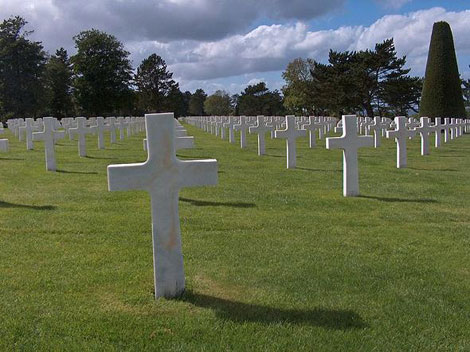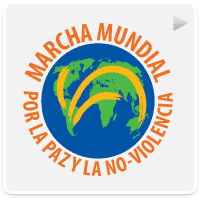The Invisibles against US missile defense
The continuous escalation of war worldwide

A study published by the University of Heidelberg reveals the gap between the media-generated image of war and the nature of the actual conflicts. Although the Second World War ended with great aspirations for world peace, since that time the total number of world conflicts has risen in a moderate, but constantly upward, curve.
----
Pressenza, Santiago, 2009-09-03
In 2008 there were 39 armed conflicts in the world: nine wars and 30 severe crises; three wars and four crises more than in 2007. These figures continue to rise; a lamentable, but not exceptional, reality. Since the end of World War II, the total number of world conflicts has risen in a moderate, but constantly upward, curve. In 1945, there were less than one hundred high, medium, and low-intensity conflicts. The current figure approaches three hundred and fifty according to the Conflict Barometer published annually by the University of Heidelberg.
The cruel paradox of this situation is the great effort that is being made, at least in official discourse, to achieve peace. At the end of the Second World War, when the evidence of the destructiveness of war was still at hand, good intentions were expressed by world leaders, who promised to promote dialogue and world peace.
Treaties were signed, the United Nations was founded, war criminals were brought to justice at Nuremburg, and the first steps were taken to create an international justice system that today is still visibly in a process of maturation. In the eyes of these leaders, all gone today, one sees signs of an historic pride in imagining themselves remembered by succeeding generations as messianic heroes who put an end to a biblical forty days and nights of a rain of fire and war and initiated a new era of peace for mankind. This was not to be. The modern biblical dream was to last a very short time.
The Cold War, the Korean War, the Vietnam conflict, the occupation of Palestine, the Iran-Iraq War, the coups d’état in Latin America, Basque terrorism, the Irish conflict, guerrilla warfare in Central America, wars of independence in Africa and Central Asia, conflicts in Bosnia, Herzegovina, Chechnya, East Timor and Afghanistan, two Persian Gulf Wars, and a long list of other hostilities, quickly buried these dreams. But this was only a beginning. Almost immediately, a much worse scenario developed.
The progressive increase in conflicts spurred the public’s desire to be informed about them.
The traditional communications media and the new media of television that debuted in the 1950’s exploited this desire. Coverage of armed conflicts increased. Year after year, the army of journalists and commentators, regardless of their interest in doing so, converted war, the suffering of others and death, into an daily phenomenon that invaded the homes, even the bedrooms, of everyone.
Hundreds of thousands of spectators in suburban neighborhoods in both developed and underdeveloped societies became accustomed to the distant, but often brutal, images that flashed across their television screens. The cruel drama of these conflicts rapidly faded in the indifferent minds of the escapist viewers, who opted, instead, to watch light entertainment and variety shows.
Little by little, news coverage of conflicts decreased. With the thirty-second news brief format of the 1980’s and 1990’s, reality was no longer hidden as an obscure part of the daily routine, but was something terrible and grotesque whose reality was totally denied. The situation remains unchanged today.
Evidently, this entails consequences. The concealment of this reality, especially in the developed world, gives the impression of a relatively peaceful planet threatened only in isolated points; a world in which the promises of liberal democracy and the implementation of free market policy lead us to “a better world”, “greater growth” and “more opportunities”, conditions linked a priori to a global situation in which there are fewer conflicts.
This impression of a world in which war is not a pressing issue, or if it is a pressing matter, remains nevertheless remote for us, is refuted by the Heidelberg University studies that show an increase of war, death and human suffering. This is a reality that cannot be shoved beneath the carpet and ignored.
Consequently, conflicts flourish on the periphery of the developed world: in Sub-Saharan Africa, Central Asia and Latin America. Of the 39 conflicts registered in 2008, twelve took place in Chad, Somalia and the Sudan. In Mexico, there were 5,300 deaths related to the war between drug cartels in 2008, more than double the figure registered for 2007.
In Colombia, the massacres perpetrated by the paramilitary and clashes between the FARC and the armed forces contribute to the rise in the violent death rate for the South American sub-continent, a grim balance that is forever carried forward.
At this point in time it is necessary to revert the situation and center it on reality. It is now essential that civil society, governments, and institutions reaffirm their consciousness of the true menace of war and of the latent and imperious nuclear threat under which we live, even though these issues are only of peripheral interest to the media that consider them as meriting only an occasional thirty seconds of prime time.
The media seek a mass audience and therefore have oriented their programming toward a lowest common denominator content to up their ratings. Consciousness, however, must be forged by means of a different logic. It must be built up through civil society organizations, the sensitivity of governments and concrete community action in the real world. Everything must be done before it’s too late so that “when they come for us” there will still be people like the academics of Heidelberg, speaking up about the monstrous impact of armed violence on our world.
(Translation provided by Jenni Lukac)
Fernando García Naddaf holds a MA in Political Science
Pressenza.org

« back









